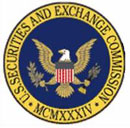| The Securities and Exchange Commission has approved two more settlements involving improper mutual-fund trading, with two former California hedge-fund managers agreeing to pay $275,000 to settle SEC charges. The SEC on Wednesday submitted for court approval a settlement with Brent Federighi, a former manager for hedge funds Ilytat and Gage, that calls for him to pay a $175,000 civil penalty and to be banned from working for an investment adviser for 18 months. Separately, Michael Hoffman, 44 years old, who founded Ilytat, agreed to pay a $100,000 civil penalty and accepted an 18-month ban on working for an investment adviser. Both men settled without admitting or denying wrongdoing. The SEC had accused Federighi of fraud in connection with "late trading" the practice of buying mutual fund shares after the 4 p.m. close of trading while receiving that day's closing price. The SEC found that Hoffman aided and abetted Bear Stearns & Co., which had allegedly processed the improper trades over a two-year period starting in 2000. Bear Stearns more than a year ago agreed to pay $250 million to settle related SEC charges, including a $90 million civil penalty that was the biggest imposed on a brokerage firm under SEC Chairman Christopher Cox. "Mr. Federighi is delighted to have this matter resolved," his lawyer, William Goodman, said. "He is looking forward to re-entering the industry once the terms of the injunction have been complied with." Hoffman closed Ilytat in 2002. Shortly after, Federighi started Gage. Gage operated until September 2003, when allegations of widespread mutual-fund trading abuses surfaced. A lawyer for Federighi declined to comment. Tarek Helou, a lawyer for Hoffman, said that "Mr. Hoffman put an end to these trading practices at his firm more than five years ago. He did so long before it became a public issue, and he cooperated fully with the SEC. He is pleased that this is now behind him and is focused on moving forward." |





